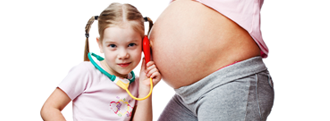Your Child at 9 Months
Pediatric Development Guide
The board-certified pediatricians at Westside Pediatrics have provided this pediatric development guide to help educate parents on some of the amazing things their child can do at this age and tips around care including teaching your child to walk and safety. Call (585) 247-5400 to schedule an appointment at our pediatric office in Rochester, NY.
Download PDF Version
WHAT YOUR BABY CAN DO
At this age your baby can probably:
Feed himself a cracker…
Crawl or scoot…
Pick up small objects with thumb and forefinger…
Babble “MaMa” or “DaDa”…
Appear very shy with stranger…
Make noise…
What you can do with your 9 month old baby
- Read to your baby!
- Play simple games like pat-a-cake and peek-a-boo.
- Give him small objects to pick up (but not small enough to fit in his mouth).
- Let him feel different textures like soft material, rough sandpaper and smooth wood.
- Keep talking to your baby. Point to objects as you name them.
- Tell him what you are doing as you dress him and feed him.
- Play music or sing to your baby.
- Use stacking toys, like used whipped topping containers or measuring cups or blocks.
- Have your baby drink from a cup
Feeding facts
Foods to Avoid
Grapes and candy are the 2nd and 4th leading causes of choking death in infants. Don’t feed these to your baby! Also Don’t feed your baby these foods:
- Popcorn or nuts
- Raw vegetables, hard fruits (Like apples or unripe pears)
- French fries, chunks of meat or chicken
- Hot dogs
- Bacon
- Peanut butter or peanuts
Finger Foods
Finger foods are small pieces of food your baby can pick up and feed herself. At this age babies like to feed themselves. Try giving your baby some of these finger foods.
- Small pieces of whole grain breads (roughly the size of a Cheerio, a few pieces at a time)
- Oat cereals (like Cheerios)
- Small pieces of cheese
- Pieces of ripe banana, peach, apricot, cantaloupe, honeydew, or mango
- Small pieces of well-cooked carrot, white or sweet potato, yam, or peas (cut in half)
- Soft meatballs
- Well-cooked pasta
Your child should always be sitting and observed while eating. Laughing and giggling with a full mouth is a common cause of choking.
Being a parent is enjoyable but hard work. There is so much to learn! Sometimes it helps to talk to other parents to get some advice from someone outside the family. If you would like to find out more, call this number and ask about parenting programs in your area.
LIFELINE 275-5151
Safety
Lead Poisoning
Lead poisoning is a serious illness which can cause serious problems. If ignored it can cause learning problems, blindness, or permanent brain damage. Lead poisoning happens most commonly in kids 1-6 years old. Children can eat lead when they put objects containing lead in their mouths. A child with lead poisoning may or may not have any symptoms that you can see, so prevention is very important.
To Prevent Lead Poisoning
Try to keep objects which contain lead out of your child’s mouth. Clean your house often, mopping up lead, dirt and dust. Make sure your child washes his hands before meals and at bedtime. Keep your child out of areas that contain old chipped paint or plaster (basements, stairways or attics.)
Where Can Lead Be Found:
- Chipped paint
- Matches
- Cigarette ashes
- Batteries
- Soil, dirt or dust
- Car exhaust from leaded gasoline
If you have questions about possible lead poisoning in your child—call your pediatrician as soon as possible. Notify your pediatrician if your house was built before 1960 and/or if it has been identified as a lead containing house. Our pediatricians can conduct a lead screening to evaluate the health of your child. If you have any questions about lead poisoning prevention or detecting high lead levels in your home—call The Lead Poison Control Program at the Monroe County Health Department at (585) 274-6087.
Environmental issues
Don’t expose your baby to temperatures below 60 degrees or above 90 degrees. Don’t expose your baby to the sun, except briefly, without proper protection. Don’t expose your baby to cigarette smoke, either in the house or in the car. Loose fitting cotton clothing is best for your baby.
My baby has a fever
When your baby has a fever it means that the temperature inside his body is higher than normal. Sometimes when a baby is sick he gets a fever. Other times fever is caused by being out in the heat for a long time. Fever caused by sickness is not always bad. As long as it doesn’t get too high it can help fight the sickness and make your baby better. Whether your baby is acting ill is more important than how high his fever is. Call your pediatrician if your baby is acting ill.
When your baby has a fever, here are some things you can do to help. Keep baby cool. Dress him lightly and keep the room at 68-70 degrees F. Use a fan or air-conditioner if you want to, but don’t let I blow right on the baby. Give lots of fluids. Fever makes your baby lose water through his skin. It is important to replace it. Good things to give your baby are:
- diluted juices
- juicy fruits
- water
Give fever medicine like Tylenol or Panadol every four hours while your baby has a fever if your pediatrician tells you to. Between doses, try giving your baby a warm bath. The evaporating water will help cool him.
Do not:
- Force your baby to rest
- Overdress him
- Cover him with a wet sheet
- “starve a fever”
- Give aspirin
Shoes
As your child begins to walk, it is time to buy him his first pair of shoes. Lots of companies will try to sell you fancy shoes that can cost a lot. Don’t be fooled. All your child needs now is some protection and support. He doesn’t need expensive shoes. A pair of inexpensive sneakers will do the job just fine. If you have extra money to spend, use it to buy him a toy.
How should I discipline my 9 month old child
Discipline is probably the hardest part about being a parent. Even at a very young age, your child will start to test his limits. He is probably not trying to be bad, and it’s important that you guide him firmly but gently so that he learns what behavior is okay and what is not. Here are some tips to follow as you start to discipline your child.
Remember, it is the action or behavior and not the child that is bad.
When you say “You’re so bad” or “You make me so angry”, you make your child feel like he is no good. Instead, say something like, “it makes me angry
when you slam the door”. This way your child will learn which behaviors are good or bad and still feel good about himself.
Offer alternatives. If you tell him “No” all the time, your child may feel like he can’t do anything. Instead, try offering alternatives. For example, maybe you don’t like it when he gets into your purse. The next time it happens, instead of saying “No, you can’t play with my purse”, say “No, you can’t play with my purse but you can play with this ball”, and give him a ball to play with. Give attention to good behavior, not bad behavior. Children will do whatever brings them the most attention, even if the attention is not praise. If you scold or yell at your child when she acts badly and don’t do anything when she is good, she will act badly to get your attention. Instead of scolding, try ignoring her bad behavior (it’s hard!) and praise her for good behavior.
Be Consistent
Your discipline is helping your child learn what behavior is okay and what is not. It is important that you keep the rules the same. If you tell your child that it is not okay to slam the door one day and don’t enforce it the next, it will be hard for her to learn that it is not okay.
Be Patient
Discipline is a long process.
Things you may be worried about at 9 months old
Stranger Anxiety
Is your child starting to be wary of people other than you or her father? This is normal. Often, around 8 or 9 months of age, but maybe as early as 6 months, a child will become very wary of anybody other than the one who takes care of her the most. She may even be shy around relatives and other people she used to be comfortable with.
Don’t worry…this is normal part of her development. It will go away with time. For now, just warn friends and family that she’s going through a shy stage. Rather than picking her up
quickly, encourage them to smile and approach her more slowly.
POISON CONTROL CENTER
1-800-222-1222
COMING ATTRACTIONS
Before your child’s next checkup, he will probably:
Play pat-a-cake or peek-a-boo
Walk holding onto furniture
Stand alone for a short time
Understand the word “no” (but not always obey it!)…
Remember to take time to hold your child and play with him.
Schedule an Appointment
If you have more questions regarding pediatric development milestones and your child’s development, call our pediatric office in Rochester, NY at (585) 247-5400 to request an appointment with one of our exceptional pediatricians.




